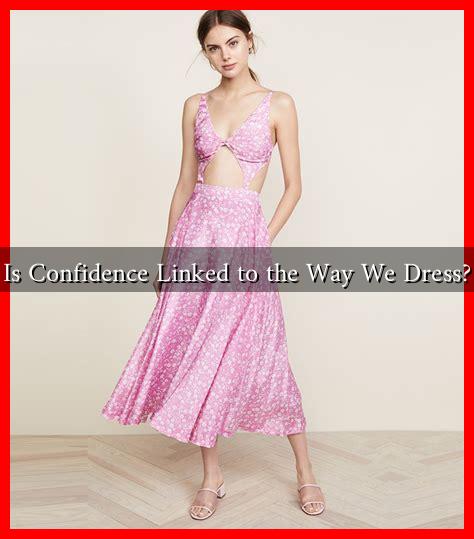-
Table of Contents
Is Confidence Linked to the Way We Dress?
In a world where first impressions are often formed in mere seconds, the way we dress can significantly influence how we perceive ourselves and how others perceive us. The relationship between clothing and confidence is a topic that has garnered attention from psychologists, fashion experts, and sociologists alike. This article delves into the intricate connection between our attire and our self-esteem, exploring how dressing well can enhance confidence and impact social interactions.
The Psychology of Clothing
Clothing is not just a means of protection against the elements; it serves as a powerful form of self-expression. According to a study published in the journal *Social Psychological and Personality Science*, clothing can affect our psychological state and behavior. The researchers found that participants who wore formal clothing performed better on cognitive tasks than those in casual attire. This phenomenon, often referred to as “enclothed cognition,” suggests that what we wear can influence our mental processes and self-perception.
How Dressing Well Boosts Confidence
Many individuals report feeling more confident when they dress well. This boost in self-esteem can be attributed to several factors:
- Self-Perception: Wearing clothes that fit well and reflect personal style can enhance self-image. When individuals feel good about their appearance, they are more likely to exude confidence.
- Social Feedback: Positive feedback from others regarding one’s appearance can reinforce feelings of confidence. Compliments and admiration can create a cycle of positive self-regard.
- Professionalism: In professional settings, dressing appropriately can lead to greater respect and authority. A well-tailored suit or a polished outfit can make a significant difference in how one is perceived in the workplace.
Case Studies and Real-Life Examples
Numerous case studies illustrate the impact of clothing on confidence. For instance, a study conducted by the University of California, Los Angeles (UCLA) found that students who dressed in business attire performed better in interviews compared to those in casual clothing. The participants in formal wear not only felt more confident but also were perceived as more competent by interviewers.
Another example can be seen in the fashion industry itself. Designers like Ralph Lauren and Giorgio Armani have built their brands on the premise that dressing well can elevate one’s status and confidence. Their marketing campaigns often emphasize the transformative power of clothing, showcasing how a well-chosen outfit can change one’s demeanor and outlook.
Statistics on Dressing and Confidence
Statistics further underscore the link between dressing and confidence:
- A survey by *The Good Housekeeping Institute* revealed that 62% of women feel more confident when they wear their favorite outfit.
- According to a study by *LinkedIn*, 70% of professionals believe that dressing well positively impacts their career advancement.
- Research from *Harvard Business School* indicates that individuals who dress in formal attire are perceived as more competent and authoritative, which can lead to increased opportunities in the workplace.
Practical Tips for Dressing with Confidence
To harness the power of clothing for confidence, consider the following tips:
- Know Your Style: Identify what styles make you feel good and confident. Experiment with different looks until you find what resonates with you.
- Fit Matters: Ensure your clothes fit well. Tailored clothing can enhance your silhouette and boost your confidence.
- Dress for the Occasion: Understand the context of your environment. Dressing appropriately for different settings can help you feel more at ease and confident.
- Accessorize Wisely: Accessories can elevate an outfit. Choose pieces that reflect your personality and enhance your overall look.
Conclusion
The connection between confidence and the way we dress is undeniable. Our clothing choices can significantly influence our self-perception and how we are perceived by others. By understanding the psychological effects of attire and making conscious choices about our wardrobe, we can enhance our confidence and improve our social interactions. Whether it’s for a job interview, a social event, or everyday life, dressing well can empower us to present our best selves to the world.
For further reading on the psychology of clothing and its impact on self-esteem, you can explore resources like Psychology Today.

